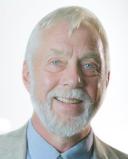Career
Who Is the Greatest Social Psychologist?
A true pioneer, John Bargh has swept all five of the field's top honors.
Posted September 1, 2022 Reviewed by Gary Drevitch
There are several different criteria one could use to label someone the greatest social psychologist. But one reasonable criterion is the respect of one’s peers. The scientist always has to ask: How do you measure that? (If you’ve never answered a question with, “It depends on how you count,” you’re not a veteran social scientist!)
One way to measure respect is by awards. In social psychology, in recent decades, there have been five major awards. For recent Ph.D.s, the top social-psychology honor is the SESP dissertation award. For those getting tenure, the APA early-career award is the top coveted honor. And for total career achievement, there are the APA Distinguished Scientific Contribution Award in Social Psychology, the SPSP Campbell award, and the SESP Distinguished Scientist award.
As of October 2022, my friend John Bargh will have collected all five of these. I don’t know anyone else who has.
Reaping all of the big-five awards I think puts Bargh as the favorite in any imaginary competition for being the greatest social psychologist, at least in the recent era. (It’s hard to compare him with geniuses of earlier eras, like Floyd or Gordon Allport, or Elliot Aronson, Stanley Schachter, E.E. Jones, and so on.)
Reflecting on Bargh, it’s worth noting that he has not experienced his career as floating along on a bed of love while happily working hard at his research. At times he has been severely attacked. The message for young researchers, I suppose, is that even if your career goes as well as it possibly could, and you are the most highly admired person in your field, you’re going to have rough and unpleasant experiences, and probably bad periods lasting for years.
My personal and professional feelings toward John have been very positive, even though we have to some extent been adversaries. We had a heavily-attended debate on free will and determinism at SPSP some years ago, and many people got the impression that he severely disliked me. That was not it at all. In fact, after the debate, he readily agreed to go out to lunch with me. We had a lively discussion and lovely meal, and he insisted on picking up the check. I recall that one sore point in the debate had been determinism, but he had thought determinism simply meant causality. He thought free will meant rejecting causality. I said that many theories of free will are causal theories. When I told him determinism meant not just causality but inevitable causality, so that there is one possible future, he said, “Oh, in that case, I’m not a determinist.” My respect for him, already high, went up further. I like people like that: concerned with the ideas rather than labels, and quite willing to revise. It reminded me of the famous response by John Maynard Keynes when somebody criticized him for not being consistent with what he had said previously: “When the facts change, I change my opinions. What do you do, sir?”
My own work has often focused on conscious processes, as often in self-control. For that reason among others, I’ve always been very interested in how Bargh could show so many phenomena that could occur while the conscious mind was uninvolved or mistaken about what was going on. His fine work pushed me to look for any things that the automatic, unconscious mind remained unable to do. For example, nobody has come close to showing that people can carry on a conversation unconsciously. His work on the extensive power of the unconscious pushed me to think that a big part of consciousness is for communication. With apologies to William James, maybe sometimes thinking is for talking? At least conscious thinking.
John recalls that when he started out, many social psychologists were dismissive of the unconscious altogether, perhaps thinking it a bizarre leftover notion from the Freudian era. And at first people were mainly willing to concede that sometimes conscious processes could be swayed by unconscious things, like bias. They still thought that all behavior had to flow from consciousness. John’s first work accepted that the unconscious had to work by way of consciousness. But then the findings built up to establish that the unconscious had considerable power. During what he recalls as his “feisty period,” he began to claim that the conscious mind had little or no power at all. This is when he and I came into debate. I learned a great deal from debating with him, and maybe he did also.
Regardless, it’s great to see the field of social psychology recognize one of its true pioneers. John Bargh has vastly enriched our understanding of how the human mind works. Based on sweeping the quintet of social psychology’s highest honors, he has a strong case to be considered the greatest social psychologist of our time.
No doubt one could decide "the greatest" based on other criteria, like methodological innovation or contributions to advancing social justice, or even just total output. But when many different awards committees keep choosing the same person, it’s a strong sign of greatness.
Note: If any reader would like to make a case for someone else as the greatest social psychologist, please do so, and I can address this in a future follow-up blog. It’s good to celebrate the successes of our discipline.
References
Bargh, J.A., & Chartrand, T.L. (1999) The unbearable automaticity of being. American Psychologist, 54, 462
Bargh, J.A., Chen, & Burrows, L. (1996) Automaticity of social behavior: Direct effects of trait construct and stereotype activation on action. Journal of Personality and Social Psychology, 71, 230.
Bargh, J.A. (2017). Before you know it. New York Cambridge University Press.
Baumeister, R. F., & Masicampo, E. J. (2010). Conscious thought is for facilitating social and cultural interactions: How mental simulations serve the animal–culture interface. Psychological Review, 117, 945-971.


